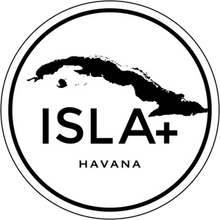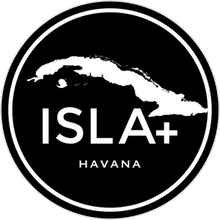A drug developed in Cuba in 1981 is currently being used as a coronavirus treatment in China. From antivirals, to vaccines and biosensors, the nation has been at the forefront of biotechnology for the last 40 years.

Beyond most people's perception of Cuba as a developing country lies a hugely successful healthcare system and state of the art drug development facilities. The roots of this hidden side to the country come directly from Fidel Castro and the Cuban Revolution, starting in 1959.
As part of the socialist reform, Castro wanted to enable Cuba to treat it's people with their own medicines. He injected big sums of money into new laboratories and education, while highly prioritizing projects to find treatment for diseases directly affecting the Cuban population. This model of development still stands today and is credited as being the driving force behind the nations accomplishments.
Since the 1980s, over $1 billion US dollars have been invested by the government into biotechnology programs. As a result, they've seen major breakthroughs and now have 569 domestically manufactured therapies, out of a total of 857 medicines approved for use in the country.

1981
Throughout the 1970s, Interferon was touted as being a miracle cancer drug, however the process to manufacturer the medicine relied on extracting white blood cells from donated samples and stimulating them with virus particles.
This created a race to find an alternative production method that would transform interferon into a viable treatment option. Against the likes of GlaxoSmithKline (known as Wellcome at the time), Cuban scientists became the first to produce large quantities of the protein.
The resultant drug, Recombinant Interferon Alpha 2B (IFNrec) works by stimulating the immune system to attack cancer calls, and is also capable of inhibiting replication of some viruses. It is still widely used today in the treatment of many types of cancers, and as an antiviral therapy.
Once the treatment was established, Cuba released the exact method needed for production to the world. As a result, China now produces huge amounts of the drug and are currently using it as a treatment for coronavirus (COVID-19).

Preventive Vaccines
Since the opening of the Finlay Institute, a specialist vaccine research and production facility, Cuba has produced some of the world's most effective preventative vaccines.
The first widely used vaccine was developed following an outbreak of Meningitis B throughout Cuba and Brazil. Concepción Campa Huergo is credited with its creation — she first administered it to herself and her children to test it's safety before it was eventually rolled out as compulsively across Cuba. The vaccine was the first to be created against Meningitis B, and Cuba currently has an incidence rate of 0.2%, the lowest worldwide.
Cuba made history once again in 1994 by creating the very first semi-synthetic vaccine, a breakthrough for vaccine development. Quimi-Hib is now given routinely to all babies in Cuba to prevent Haemophilus influenza type b (Hib).
The country's biggest biotech export is also a vaccine, the most effective in the world against Hepatitis B, used in more than 30 countries.

Biosensors
One of Cuba's best known assets, sugar , also plays a huge part in their cutting edge biotechnology enterprises. Compared to other scientific giants, Cuban institutes have considerably less funding, so often turn their efforts towards more economically viable materials.
Sugar is readily available in many different forms in Cuba, and more importantly, it is affordable. Cyclodextrins are a complex type of sugar molecule that researchers at the University of Havana have used to create biosensors that they hope one day could be used in the detection and treatment of sepsis.
The technology involves electrode surfaces containing cyclodextrin monolayers which can recognize differences between small molecules, and levels of chemicals such as nitric oxide (NO), a key determinant in the symptoms of septic shock.

Link: https://medium.com/@eharris1510/cubas-booming-biotech-industry-e8c5bf97e320




